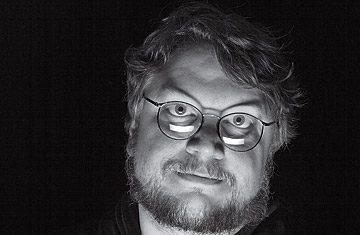
TIME: Don't Be Afraid of the Dark, the new film that you co-wrote and produced, is a remake of a 1973 TV movie. There are a lot of remakes and reboots and reimaginings lately. How does one do a "re-" anything well?
Guillermo del Toro: It needs to come from a place of genuine love. When remakes come from a genuine place, like [John] Carpenter's The Thing or [David] Cronenberg's The Fly, they can be really good.
There's a lot of whispering in this film, which is the most inexpensive scare effect ever.
There is no more terrifying horror than the one that is intimate. Whispers are that.
You grew up in Mexico, where a scary drug war is going on. Why not make a movie about that?
I'm not a filmmaker who can speak directly about politics without addressing it through fable or parable. It's just not in my makeup, and the horror film is a very political genre. But I cannot go back to Mexico as a director because of the kidnapping of my father. A film is a highly visible venture, and I can't risk it.
You're talking about your father's being kidnapped by bandits and held for ransom for 72 days in 1998. That must have been absurdly frightening.
It was. It is. Every day, every week, something happens that reminds me that I am in involuntary exile [from my country]. But to talk about life in a direct way is the work of other types of storytellers. As a man, the kidnapping defined my life. As a storyteller, I try to define myself.
You say horror is inherently political. How so?
Much like fairy tales, there are two facets of horror. One is pro-institution, which is the most reprehensible type of fairy tale: Don't wander into the woods, and always obey your parents. The other type of fairy tale is completely anarchic and antiestablishment.
You have an interesting living situation, with a house, separate from your family, for just your books, your posters, your art and your work.
As a kid, I dreamed of having a house with secret passages and a room where it rained 24 hours a day. The point of being over 40 is to fulfill the desires you've been harboring since you were 7.
What did your wife have to say about that?
She was happy. When you're 7, your mother throws away your comic books. When you're 40, you should be able to prevent that.
How do you deal with people who think of the fantastic as infantile?
I try to avoid long conversations with them. You cannot convince a Buddhist to become a Protestant any more than you can convince a person who embraces realism as the highest form of art that fantasy is an equally important manifestation. It's impossible.
You speak as if your art is your religion.
It is. To me, art and storytelling serve primal, spiritual functions in my daily life. Whether I'm telling a bedtime story to my kids or trying to mount a movie or write a short story or a novel, I take it very seriously.
Why do you always wear black?
I have been told it's very slimming. [Laughs.] But let me tell you, no matter how I look in black, you don't want to imagine me in white.
